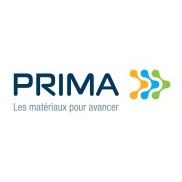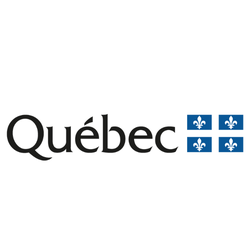
Closed
PRIMA — SI2TEC – Feasibility Studies
Last Update: October 27, 2025
QC, Canada
Supports feasibility studies for circular economy projects in Québec
Partnering and Collaboration
Grant and Funding
At a glance
Funding available
Financing goals
Optimize production processes
Integrate new technologies
Research and experimental development
See more
Eligible Funding
- Maximum amount : 75,000 $
- Up to 50% of project cost
Timeline
- Receipt of requests is now closed
Eligible candidates
Eligible Industries
- Manufacturing
- Professional, scientific and technical services
- Administrative and support, waste management and remediation services
Location
- Quebec
Legal structures
- Non-profit
- Public or Parapublic institution
- For-profit business
- Non-financial cooperative
Annual revenue
- All revenue ranges
Organisation size
- All organization sizes
Audience
- Canadians
- Startups
Non-profit candidates
Sector of operation
- Research
- Environment
- Economic, Social and Community Development
- Business Associations
Target groups
- Business owners / entrepreneurs
- Nonprofits / charities
Revenue structures
- All structures
Scope
- Local
- Municipal
- Regional
- Provincial
Overview
The PRIMA — SIITEC Feasibility Studies program offers grants covering up to 50% of eligible expenses, capped at $75,000 per study, to support feasibility studies and planning of circular economy projects in Quebec's industrial sectors. Eligible activities include technological, commercial, and competitive positioning analyses as well as feasibility studies for innovative synergies in the circular economy.
Activities funded
- Conducting a study on the technological, commercial, or competitive positioning of a sector linked to the circular economy.
- Undertaking a study or analysis aimed at solving a problem, issue, or need common to several companies in the same industrial sector or associated sectors.
- Carrying out a techno-economic feasibility study or a study on identifying technology that would promote industrial synergies.
Eligibility
- Applicants must be private for-profit companies with an establishment in Québec, including cooperatives whose activities are similar to those of a business.
- Municipal joint companies are also eligible.
- Non-profit organizations (NPOs) with an establishment in Québec that conduct production, research and development, and/or marketing activities are eligible. This includes associations and sectoral organizations, private business associations, and groups of cooperatives.
- Projects must benefit the development of several companies within the same industrial sector or associated sectors.
- Eligible projects must promote alliances, partnerships, and networking within a sector, territory, or value chain.
- The project must support the advancement of a circular economy which aims to reduce the consumption of raw materials, decrease residual material production, and create a sustainable and viable economic activity.
Who is eligible?
- Private for-profit companies with an establishment in Québec, including cooperatives whose activities are similar to those of a business
- Joint companies in the municipal sector
- Non-profit organizations (NPOs) having an establishment in Québec and carrying out production, research and development, and/or marketing activities
- Associations and sectoral organizations
- Private business associations
- Groups of cooperatives
Who is not eligible
- State-owned enterprises as well as companies directly or indirectly controlled by a government (provincial or federal), or businesses majority-owned by a state-owned enterprise.
- Community Futures Development Corporations (SADC).
- Businesses registered in the Register of Ineligible Enterprises for Public Contracts (RENA).
- Enterprises in the tertiary sector, primarily engaged in service provision rather than manufacturing goods or trade.
- Applicants who have, in the two years preceding the financial aid application, failed to meet obligations after being duly notified by the MEIE in relation to the grant of a previous financial aid.
- Any company under the protection of the Companies' Creditors Arrangement Act or the Bankruptcy and Insolvency Act.
Eligible expenses
- Professional fees.
- Salaries and benefits of employees dedicated to the project based on the actual portion of wages paid by the employer corresponding to the time spent on the project.
- Direct costs for the use of materials and equipment, justified by project duration and necessity.
- Rental costs for equipment directly related to the project, calculated based on project duration and necessity.
- Operational costs for using IT tools calculated according to their use in the project.
- Travel and accommodation expenses associated with project execution.
- Administrative follow-up costs (management fees) for RSRI, set at 5% of the project's eligible expenses.
Eligible geographic areas
- Québec, Canada.
How to apply
1
Contact an advisor
- Contact a program advisor to validate the eligibility of your project.
- Complete this step before March 20, 2025, to ensure that your project aligns with the program's objectives.
2
Gather the required documentation
- Request the application form from the relevant contact by March 20, 2025.
- Consult the insider's guide available in French to understand the application requirements.
3
Prepare the application
- Write a detailed project proposal including technological and economic feasibility studies.
- Describe the objectives, the work plan, and the potential benefits of the project's circular economy.
- Ensure that all sections, such as deployment strategies or the acquisition of strategic data, are addressed comprehensively.
4
Submit the application
- Submit the entire application file, including all required documents, before April 3, 2025, at noon.
- Ensure that the application meets the program's criteria and deadlines.
5
Assessment of the application
The application will be evaluated by the Technical-Economic Analysis Committee of CRIBIQ based on merit and alignment with circular economy objectives.
6
Approval of funding and agreement
- Receive a project acceptance notification from CRIBIQ.
- Sign a funding agreement with the relevant RSRI and project partners.
7
Project initiation
- Start the project according to the agreed schedule and deliverables.
- Ensure that progress aligns with the work plan and proposed objectives.
Additional information
- The project must be completed within a maximum duration of twelve months, with clear start and end dates and specified deliverables.
- Financial support is limited to 50% of eligible expenses, with a cap of $75,000 per study.
- The cumulative government financing for a project is capped at 70% of eligible expenses, and additional financing cannot originate from another program of the ministère de l’Économie, de l’Innovation et de l’Énergie (MEIE).
- Funding from this program relies on grants provided to CRIBIQ by the MEIE, with merit-based awards determined by the CRIBIQ Technical-Economic Analysis Committee.
- Relevant documents, including the Applicant’s Guide and the application form, are available in French only.
- It is necessary to contact an advisor by March 20, 2025, to validate project eligibility before applying.
Contacts
michel.lefevre@prima.ca
514 241-3322
QC, Canada
Apply to this program
Frequently Asked Questions about the PRIMA — SI2TEC – Feasibility Studies Program
Here are answers to the most common questions about the PRIMA — SI2TEC – Feasibility Studies. This section explains what the program is, how much funding is available, eligibility requirements, application deadlines, and other important details to help you determine if this grant is right for your business.
What is the PRIMA — SI2TEC – Feasibility Studies?
How much funding can be received?
Who is eligible for the PRIMA — SI2TEC – Feasibility Studies program?
What expenses are eligible under PRIMA — SI2TEC – Feasibility Studies?
Who can I contact for more information about the PRIMA — SI2TEC – Feasibility Studies?
Where is the PRIMA — SI2TEC – Feasibility Studies available?
Is the PRIMA — SI2TEC – Feasibility Studies a grant, loan, or tax credit?
Apply to this program
More programs like this

Grant and FundingClosed
MAPAQ — Food Processing Program — Component 2
Ministry of Agriculture, Fisheries and Food (MAPAQ)Enhancing productivity through food industry automation assistance

Grant and FundingOpen
Support for biofood exports - individual projects
Ministry of Agriculture, Fisheries and Food (MAPAQ)SEB supports Quebec agri-food market expansion outside Quebec

Grant and FundingOpen
ÉcoPerformance — Recommissioning of building mechanical systems
Gouvernement du QuébecFunding to optimize the operation of building mechanical systems

Grant and FundingSuspended
Individual Market Access Support (SIAM)
Aliments du QuébecMarket Access Support for Quebec Food Processors

Grant and FundingClosed
Support for Innovation and Productivity for Québec manufacturing companies (SIPEM) - Part 1
PROMPTSupports technological innovation for Quebec manufacturing productivity

Grant and FundingOpen
Electricity Management Systems
Hydro-QuébecMoney for energy management systems in Quebec

Grant and FundingClosed
GHG Challenge Program - Industry
Environnement Québec (MELCC)Supports major industrial projects reducing greenhouse gas emissions

Grant and FundingOpen
Economic development program to help revitalize territories (DEPART)
Investissement Québec (IQ)DÉPART supports economic diversification and growth in targeted areas

Partnering and CollaborationGrant and FundingOpen
Call for collaborative and structuring innovation projects in Quebec's strategic sectors
Gouvernement du QuébecCollaborative innovation funding for Quebec's strategic sectors

Grant and FundingOpen
Innovative Projects Program
Hydro-QuébecSupports innovative, energy-efficient projects for multi-building developments
Sign up to our platform to access the PRIMA — SI2TEC – Feasibility Studies information sheet for free
Get access to 4,000+ programs, practical guides, personalized alerts, and an AI assistant to support your grant applications.